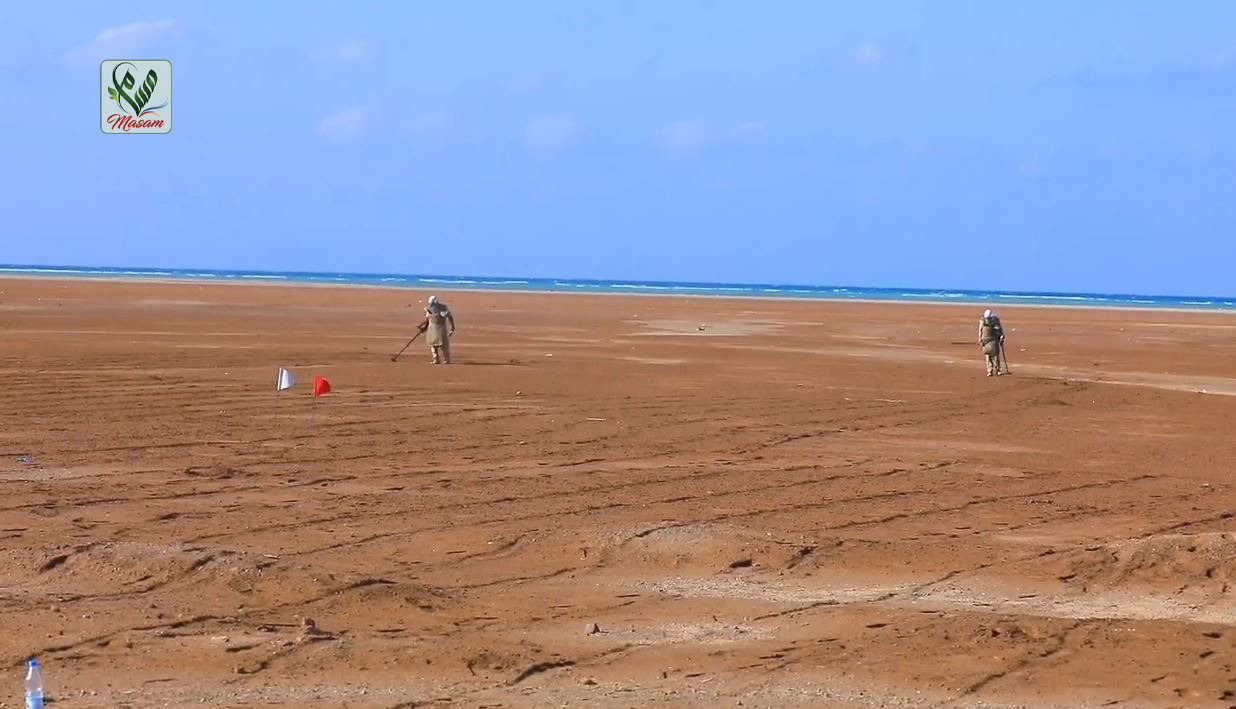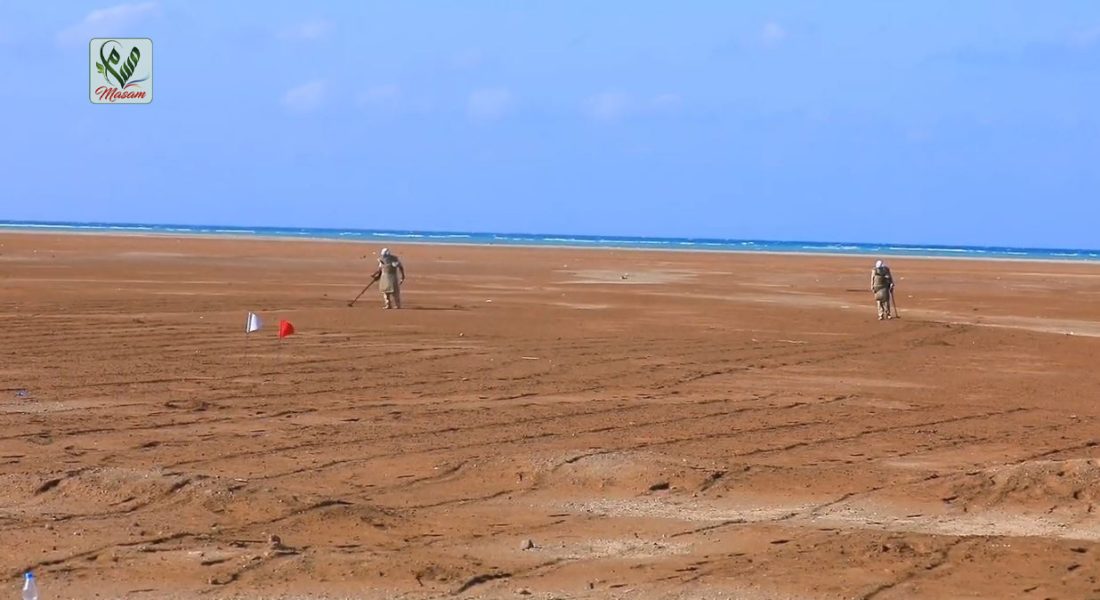
In the most important and largest Directorates of Taiz Governorate in terms of area, planted mines covered 85% of its area, thus turning into a fatal trap for Yemenis and a stumbling block to the return of displaced people to their homes and farms for more than a year, as paths were cut off and civilians options were narrowed to the extreme.
The inevitable result of this catastrophic situation was diversity of casualties, and multiplicity of victims on public roads, villages, agricultural lands and coasts, as mines turned those areas which are infested with underground buried terror into open death fields, where presence of life hardly appears in the villages and areas of Dhubab Directorate, to the extend that sometimes it seems like deserted areas.
In the face of this catastrophic humanitarian situation and given the strategic importance of Dhubab Directorate, Project Masam management gave Dhubab Directorate great priority and attention to extract it from the mines quagmire, as Masam administration assigned 6 engineering teams to start securing the directorate and clear it of mines planted in the coasts, fishermen’s harbors, civilian homes, farms, main roads and subsidiary along the Directorate, which is approximately 1557 square kilometers.
According to the Supervisor of Masam Engineering Teams in Taiz Governorate, Engineer Aref Al-Qahtani, Masam teams were able to secure 30% of the area of Dhubab Directorate including residential and agricultural areas, main and secondary roads, fishermen’s ports, and other vital areas related to civilian lives and their livelihoods.
Al-Qahtani mentioned in a special statement to Massam Media Office that Dhubab Directorate is one of the most important Directorates of Taiz Governorate, as it contains the most important water strait in the world, which is Bab Al-Mandab Strait, pointing out that Dhubab is characterized by a unique geographical diversity, and this diversity is the main reason for mining it with all types of mines and explosive devices whether personnel or land mines
In this context, Al-Qahtani stated that Project Masam keenness for Yemenis lives and clearing their lands from the death traps that hijacked thousands of civilians, made the project management assign 6 engineering teams to work in Dhubab Directorate, namely Teams 17, 19, 21, 24, 28 and 29, since project launch these teams have managed to secure vast areas which exceeded 30% of the Directorate, indicating that the process of securing Dhubab completely from mines requires more time and effort due to the density of mines, their cultivation randomness and the large areas contaminated with them.
Al-Qahtani also noted that the most important areas that have been secured from mines in Dhabab are the Directorate center, Bab Al-Mandab, Al-Omari, Al-Ja’sha, Hawza, Harhar, Al-Saimen, Al-Saidi, Al-Hanishiyah, Al-Kadha and other populated areas and villages.
Al-Qahtani confirmed that life has returned to all areas that Masam hands have reached, and fishermen, who represents the largest percentage of Dhubab citizens, have been able to practice their work after Masam teams cleared Dhubab coasts and fishermen’s harbors.
Regarding the tragedies created by mines in Dhubab Directorate and the suffering endured by citizens due to mines, Sheikh Muhammad Saleh Al-Jamai, one of the dignitaries of Dhubab Directorate, describes this suffering, saying, “Who did not die with mines lived with as a disabled person where his feet or one of them amputated and the other left his home and town and went in search of a safe place to live far from fear, others left their farms and their source of livelihood in order to search for another source of livelihood that they can get without fear.”
Sheikh Muhammad al-Jamai told Masam Media Office that the fishermen, who are the majority in Dhubab, had the largest share of mines crimes that were planted on the coasts and fishing ports and caused the majority of fishermen to refrain from practicing their work for fear that they would be affected by death traps whether on land or sea, adding that the animals also did not escape the harm of the Houthi mines as hundreds of farmers’ sheep and cows have become scattered shreds along with the environment, infrastructure, asphalt roads and others have been affected by mines.
Sheikh Muhammad Al-Jamai added, we were almost besieged, living in fear and anxiety until Masam engineering teams arrived to open the roads for us, secured residential villages, farms and coast, restored safety for us in our homes and livelihoods. Masam teams made great efforts and are still continuing in their humanitarian mission to secure the land and humans from mines danger with dedication and sincerity, so we call on these good teams to continue clearing mines because Dhubab Directorate is still heavily contaminated and the threat of mines still exists.

